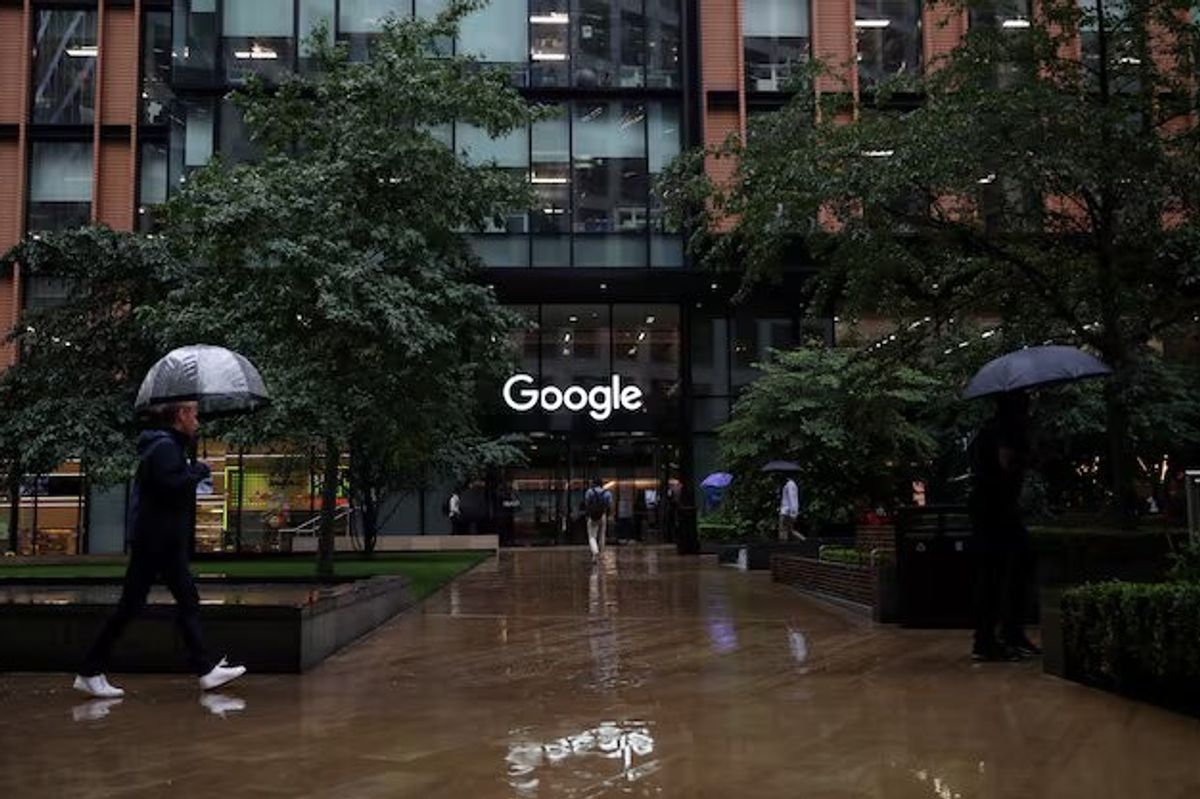UK to investigate Google's search services using new regulatory remit
Britain's regulators focus on Google’s dominance, data practices, and the rise of AI-powered search engines
Reuters
News Agency Partner
Reuters is a leading source of news and information, delivering fact-based reporting and expert analysis on international events and trends.

People walk past the Google headquarters in the Kings Cross area in London, Britain, August 14, 2019.
Reuters
This move follows US scrutiny of Google's monopoly
The Competition and Markets Authority to decide if it should intervene in the market
Britain’s competition regulator, the Competition and Markets Authority (CMA), announced it would use newly expanded powers to investigate Google’s search services, focusing on their impact on consumers, businesses, and advertisers.
This probe comes amid increasing pressure from the U.S., which has called for the tech giant to be broken up.
The CMA gained broader authority over big tech companies earlier this month and said that search services are critical for economic growth. It is now assessing whether Google holds a dominant position in the market.
“Millions of people and businesses rely on Google’s search and advertising services—90% of searches happen on their platform, and over 200,000 UK businesses advertise there,” said Sarah Cardell, CEO of the CMA. “It’s our job to ensure that consumers benefit from choice and innovation in search services and that businesses get a fair deal.”
Google responded by acknowledging the vital role its search services play in supporting UK businesses. “Google Search supports millions of UK businesses to grow by reaching customers in innovative ways,” said a Google spokesperson.
“We will continue to work constructively with the CMA to ensure that new regulations benefit all types of websites, while still allowing people in the UK to access helpful services.”
The move follows pressure from U.S. antitrust regulators, who have accused Google of monopoly practices, including arguments for the company to sell its Chrome browser and share its search data with rivals.
In August, a U.S. judge ruled that Google had violated antitrust laws by spending billions to make its search engine the default worldwide.
The CMA’s investigation will focus on whether Google’s search and advertising services should be designated as having Strategic Market Status (SMS).
This designation would allow the regulator to impose restrictions or conduct interventions in the market.
The CMA will also examine how Google’s market dominance impacts competition and innovation, particularly its collection and use of consumer data.
The rise of AI-powered search engines, such as ChatGPT, could challenge Google’s dominance long term, and the CMA will explore whether Google can shape the development of these technologies to mitigate the threat.
The result of the investigation, which could take up to nine months, may require Google to share data with competitors or grant publishers greater control over how their data is used, particularly in AI services.










Comments
See what people are discussing